- Conferences
Conferences 2026
20th IAOS conference, May 12 to 14, 2026, Vilnius, Lithuania

20th IAOS Conference – Member Update

We are pleased to share the latest news and updates regarding the IAOS 2026 Vilnius Conference.
This includes President’s Invitation and Financial Support Opportunity
INVITATION FROM THE IAOS PRESIDENT
We invite you to listen to an inspiring message from IAOS President, Mr Gary Dunnet, who warmly encourages you to participate in the 20th IAOS Conference, to be held in Vilnius in 12-14 May 2026.
2026 IAOS conference video Gary Dunnet
FINANCIAL SUPPORT OPPORTUNITY
We would like to draw your attention to available financial support opportunities for statisticians from developing countries.
Financial support is provided by Eurostat, through a grant managed by the United Nations Statistics Division (UNSD). Further details are available on the conference website, where you can find the form: Financing possibilities.
Financial possibilities vary by institution but generally cover travel, food, accommodation, visa costs (with the exception that visa expenses are not reimbursable when travel to another country is required to obtain the visa), and conference and short-course registration fees. A committee of representatives from all involved institutions will make the funding decisions, and awardees will be notified in due course.
BE A PART OF THIS EXPERIENCE!
Early bird registration is open until 17 March 2026.
For more information on key dates, registration fees, and practical details, please visit the Conference website.
If you have any questions, please visit the conference website or contact IAOS 2026 Vilnius Conference Team iaos2026@stat.gov.lt.
We look forward to welcoming all participants to Vilnius!
Extended Deadline for Submission of Invited Paper Session Proposals for IAOS 2026

As the holiday season approaches and many of us take time to pause, reflect, and recharge, we are pleased to support this well-deserved break by extending the deadline for Invited Paper Session (IPS) submissions for the International Association for Official Statistics (IAOS) Vilnius Conference.
The new deadline for proposal submission is 19 January 2026.
The IAOS 2026 Vilnius Conference, to be held on 12–14 May 2026, will serve as an important forum for dialogue, innovation, and collaboration within the global statistical community. We strongly encourage you to contribute to the scientific programme.


IAOS and the State Data Agency (Statistics Lithuania) invite you to join a global conversation to showcase groundbreaking ideas, share research, and connect with experts shaping the data-driven future at the IAOS 2026 conference, May 12 to 14, 2026, in Vilnius, Lithuania
The theme of the 20th IAOS Conference is Navigating the Data Revolution: Innovations and Impact in Modern Statistics. We are living in an era where data is created faster and in greater volume than ever before — bringing unparalleled opportunities as well as new challenges for statisticians, data scientists, and policymakers.
Explore together with us how modern statistical methods and data innovations can drive meaningful insights, inform smarter decisions, and spark cross-disciplinary breakthroughs.
Explore Conference Strands: https://www.isi-next.org/conferences/iaos-2026/theme-strands/
We are now calling for Invited and Contributed Papers.
Deadlines:
- IPS proposals close on 15 December 2025.
- CPS and poster proposals close on 19 January 2026.
For more information: https://www.isi-next.org/conferences/iaos-2026/call-papers/
Early bird registration is also open: https://www.isi-next.org/conferences/iaos-2026/
 Get ready for the 2026 IAOS Conference, taking place from 12 to 14 May 2026 in Vilnius, Lithuania.
Join us in one of Europe’s most dynamic and beautiful capitals for an inspiring event under the main topic Navigating the Data Revolution: Innovations and Impact in Modern Statistics.
The conference will feature a rich scientific programme, including invited and contributed paper sessions, preceded by short courses on 11 May 2026.
SAVE THE DATE FOR:
Get ready for the 2026 IAOS Conference, taking place from 12 to 14 May 2026 in Vilnius, Lithuania.
Join us in one of Europe’s most dynamic and beautiful capitals for an inspiring event under the main topic Navigating the Data Revolution: Innovations and Impact in Modern Statistics.
The conference will feature a rich scientific programme, including invited and contributed paper sessions, preceded by short courses on 11 May 2026.
SAVE THE DATE FOR:
- Engaging sessions covering a broad range of topics in official statistics and beyond;
- A focus on innovation, ethics, partnerships and impact in the data revolution;
- A vibrant international community of official statisticians, researchers, data scientists and beyond;
- A unique opportunity to experience Lithuania’s culture, history and hospitality.
Conferences 2024
IAOS-ISI 2024 MEXICO CONFERENCE
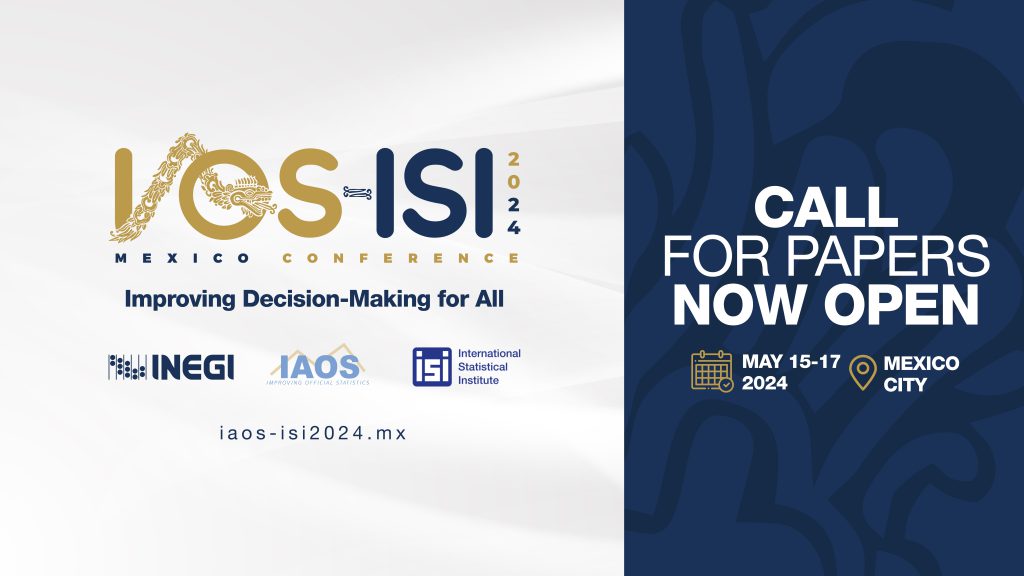
The National Institute of Statistics and Geography (INEGI) of Mexico, the International Association of Official Statistics (IAOS) and the International Institute of Statistics (ISI) are pleased to announce the Call For Papers for the IAOS-ISI 2024 Mexico Conference Improving Decision-Making for All, to be held from the 15th to the 17th of May 2024 in Mexico City, Mexico.
The theme for the Conference aims to provide an environment where interested people and institutions can examine the current dilemmas around data and suggest ideas for producing statistical information that contributes to improving decision-making at every level, from policymakers to citizens.
The Conference’s strands seek to trigger analysis and discussion on topics that highlight both the role of statistics as a valuable public good, that all kinds of users can build on for various decision-making processes, and the need to build a new social contract around data based on value and trust.
More details at the Conference’s official website:
Conferences 2023
International Association for Official Statistics – International Statistical Institute Conference 2023
Livingstone, Zambia – April 4-6, 2023
The 17th International Association for Official Statistics Conference and 3rd International Statistical Institute Regional Statistics Conference will be held in Livingstone, Zambia from 4-6 April 2023. It is jointly organised by the International Association for Official Statistics, International Statistical Institute and the Zambia Statistics Agency – ZamStats. The conference aims to provide
- A forward-looking prospectus for statistics to help improve decision-making over the next 10 years
- An opportunity to bring together diverse communities to foster innovation and partnership
- A focus on Africa through Agenda 2063 and the SDGs
The conference also has a strong focus on capacity building in Zambia and across the region.
The call for papers is now closed.
Registration is open at https://www.zamstats.gov.zm/2023-iaos-isi-conference/registration/.
Attendees are also encouraged to review accommodation options and visa requirements at https://www.zamstats.gov.zm/2023-iaos-isi-conference/about-conference/.
Conferences 2022
International Association for Official Statistics Conference 2022
Krakow, Poland – April 26-28, 2022
Worthy Information for Challenging Times
Information Note
The responses of societies and economies to the short and long term consequences of the COVID 19 pandemic are taking place within the challenges of climate change and the international commitments to leave no one behind. Data, and in particular Official Statistics, are key to these responses.
Yet with multiple sources and providers, it is often difficult to differentiate the good from the bad, the trustworthy from the unreliable, the relevant from the noise.
In these times, achieving relevance and enhancing trust in information is a fundamental challenge facing Official Statistics. It requires a multi-strand approach.
The seven strands for the conference reflect this approach, recognising that Official Statistics needs to respond to:
- the need to build shared data governance in a time of the data deluge
- ethical challenges that go with the booming role played by data in societies and economies
- producing valuable information for policy-making and for public debate, in ways that bring value to users
- new and emerging statistical methodologies and technologies able to provide good statistics
The strands are:
1 – Integrating available Data Sources for Official Statistics: Challenges and Opportunities
This strand will include challenges in dealing with “not-statistically oriented” data sources, and integrating these across the different domains (economic, social and environment).
2 – Backbone of Official Statistics: Critical Sources, Infrastructure, Resources
This strand will examine challenges and responses in ensuring that the unique assets of Official Statistics can take advantage of the data deluge.
3 – Official Statistics Addressing Global Objectives (SDGs, Climate change…)
This strand will focus on interactions between Official Statistics outputs and global agendas.
4 – Official Statistics and Covid-19: key takeaways
This strand will review how the responses to the major disruptions experienced by Official Statistics due to the pandemic have been relevant and how they might have positive long-lasting benefits.
5 – Abundance of Data for Official Statistics’ Uses: Meeting the Ethical Challenges
Availability and possible use of new data sources is raising ethical challenges for Official Statistics. The pandemic has highlighted some of them. This strand focuses on understanding these challenges and responses.
6 – Statistics in a Time of Distrust and Misuse: The Communication Challenge
This strand will examine challenges in communicating Official Statistics at a time of data desire but also data rejection. It will review the respective contributions played by reputation, independence, reliability and relevance.
7 – Official Statistics Contribution for a Global Data Governance
In an ever-expanding data ecosystem, Official Statistics aims at taking a pivotal role in Data Governance. This strand will examine the implications for Official Statistics from local, national and international perspectives.
Submission of Invited Paper Session Proposals
The Scientific Program Committee of the IAOS conference 2022 organized jointly with Statistics Poland in Krakow, Poland on April 26-28, 2022, is currently accepting proposals for Invited Paper Sessions (IPS). To submit a proposal for the IPS please access the IPS submission form using the following link: https://www.iaos2022.pl/call-for-ips/. The closing date for submission of proposals is August 30, 2021 (extended deadline).
Submission of Contributed Paper Proposals
Submission of Contributed Paper Proposals is now closed.
Conference Fees and Registration
Information on conference fees and registration is available on the conference website.
Conferences 2020
Zambia IAOS 2020 Conference – Better Lives 2030: mobilising the power of data for Africa and the world
Following discussions with Ministers in the Government of Zambia, it has been agreed that, because of the current COVID-19 pandemic, the 17th conference of the IAOS/3rd regional statistics conference of the ISI, that we had planned to be held in Livingstone, Zambia, has been postponed.
Previously planned for May 2020, it is now hoped that the conference may be held in the spring of 2023 in Livingstone, Zambia. More details will be provided as decisions are taken.
More details can be found on the ZamStats website here.
Better Lives 2030: mobilising the power of data for Africa and the world
Avani Victoria Falls Resort
Livingstone, Zambia
19-21 May 2020
Bringing together statisticians and all those in government, universities and education who care about the value of statistics to society.
The organisers – IAOS, ISI and the Zambia Statistics Agency thank everyone for their keen interest. The Scientific Programme Committee is now reviewing the proposals and will announce the agenda in February.
Authors of papers for the IAOS Conference from the African region are warmly invited to submit their manuscript for publication in an extra issue of the Statistical Journal of the IAOS (SJIAOS). (See also www.officialstatistics.com)
This extra issue will be fully dedicated to Official Statistics in the African region. Authors that are not able to participate at the IAOS conference, or authors of manuscripts that will not be presented at the conference are invited to submit a manuscript.
The manuscripts (in English) can be submitted via this link. A special guest editorial team will select around 25 manuscripts for publication. The manuscripts will go through a blind review procedure with two reviewers.
Organised by:
- the International Association for Official Statistics,
- International Statistical Institute and
- Zambia Statistics Agency
We have selected seven themes:
- Future of Statistics for Africa: statistics that leave no one behind
- Skills for Africa in the era of data
- Official statistics in society: they matter to all of us
- Big data. Opportunities arising from the new data ecosystem
- Statistics making a difference: public health, prevent and cure
- Statistics making a difference: environment and climate
- Statistics making a difference: from data to progress
More information about each theme is shown below.
The conference programme has been designed to deliver:
- A forward looking prospectus for statistics to help improve decision making over the next 10 years
- An opportunity to bring together diverse communities to foster innovation and partnership
- A focus on Africa through Agenda 2063 and the SDGs
- Capacity building in Zambia and across the region
More information about each theme is shown below.
Proposals
Session and Paper proposals
You were invited to submit any of the following:
- Proposal for a session, lasting 90 minutes in total and including three or four speakers plus a discussant. Please indicate the strand chosen, the title of the proposed session, a half-a-page abstract, the list of speakers with affiliation and link to web page (if possible).
- Contributed individual paper, which will be organised in special topic sessions. Please indicate the strand, the title of the proposed paper and a half-a-page abstract.
- Contributed individual poster. Please indicate the strand, the title of the proposed poster and a half-a-page abstract.
In all cases please indicate your own name, your affiliation, your email address, your phone number and your web-page, if available.
Proposals should be sent to zambiastats2020@gmail.comby 21 January 2020(Extended deadline).
Please send a single file (pdf, word, text, etc) with the required information. The Scientific Programme Committee will consider the proposals and inform you of the outcome (acceptance or not) by end January 2020. If selected, final materials for the conference proceedings need to be submitted by end April 2020.
Pre and Post conference workshops, side events or meetings
The main programme will run over three full days. There is also potential for side events, relevant to the themes, before or after the main event.
Suggestions for pre-and post-conference workshops, events or meetings should be also send to zambiastats2020@gmail.comby 31 December 2019, with a clear description of the proposed content and organisation of the event.
Please indicate your own name, your affiliation, your email address, your phone number and your web-page, if available.
The Scientific Programme Committee will consider the proposals and inform you of the outcome (acceptance or not) by end of January 2020. The Scientific Programme Committee reserves the right to combine events.
Conference Themes
Strand 1: “Future of Statistics for Africa: statistics that leave no one behind”
Agenda 2063 sets out the vision for an integrated, prosperous and peaceful Africa, driven by its own citizens and representing a dynamic force in the international arena. This strand will explore how statistics can help guide decision makers to realise this vision. Five years into the Sustainable Development Goals (SDGs), and with only ten years to go to 2030, how can relevant, comprehensive and disaggregated statistics assist in understanding who is getting left behind and what needs to be done to ensure that they are not?
Providing the necessary statistical information at a time of considerable change requires fundamental questions to be asked about the future of the census and other domains of official statistics and methodology.
Subthemes include
- How can statistics help guide decision makers to realize the Agenda 2063 vision?
- How can statistics assist in understanding who is getting left behind and what needs to be done to ensure that they are not?
- How are we realizing the benefits of the data revolution? Are we prepared for future changes in the data ecosystem?
- The 2020 Census round is in full swing. The census is a once in a decade opportunity to ensure that all are counted. What is the future for the census?
- Where should we be going with surveys and use of administrative data? What is the future role of non-official sources of data? What new methods will we need?
Strand 2: “Skills for Africa in the era of data”
The data revolution has changed the supply and paradigms for how we access and use information and data. How can we develop competence for the young generations? How can we help professionals, leaders, politicians, journalists, engineers and officials to update their skills to fully benefit from modern data?
In addition to papers, this strand would consider opportunities for workshops, training courses and other engagement activities for young generations.
Sub-themes include
- Equipping our children to succeed in a data rich world. What are the skills they need and how can we ensure that they are developed?
- Statistical offices struggle to develop and retain junior staff. How can we ensure that the future of official statistics is safeguarded by bringing on the next generation of professional staff?
- How can we help leaders need to understand the potential of data and data analytics? Leaders in statistics increasingly need to have deep technical credibility, strong management competence and the ability to navigate a complex and hazardous political landscape. How can we support them in getting the skills they need?
- The public often receive official statistics through the medium of journalism. How can we support journalists to write better, more compelling (and accurate) stories about numbers?
- To be an effective citizen we need to be able to make sense of statistics and to be sceptical of statistical claims. How do we foster statistical literacy for all?
Strand 3: “Official statistics in society: they matter to all of us”
In a crowded space, how do we ensure that the message of official statistics cuts through and is understood by all, and that official statisticians listen and provide statistics that resonate and are relevant to people’s lives?
Sub-themes include
- How do we communicate the role of official statistics and engage with politicians, media and civil society? How do we address issues of autonomy, independence and relevance and protect the position of the national statistics office and its leaders?
- To help decision makers, statistics need to connect with politicians and be able to be used to hold them to account. What are the mechanisms that support this?
- For official statistics to truly serve democracy, good engagement is also needed with the media and civil society. How can we work together?
- How do we make the case for autonomy and independence for official statistics and find a voice that protects the position of the national statistics office and its leaders?
Strand 4: “Big data. Opportunities arising from the new data ecosystem.”
To succeed in the new data ecosystem there needs to be a strong partnership between official statistics and other actors, including in data science and artificial intelligence. How can we build such partnerships?
Sub-themes include
- How can we make a success of partnerships and coordination in the emerging data ecosystem?
- Capacity within the system is far below what is needed to respond to the agenda in front of us. How do we make the case for resources, develop new business models that better match demand and supply and find ways to enhance the capability of the system?
- The new ecosystem demands new rules. What part can statisticians play in areas like data ethics where we have both much to offer and much to learn if we are to navigate successfully and sustain public confidence?
Strand 5: “Statistics making a difference: public health, prevent and cure”
Ensuring healthy lives and promoting the well-being at all ages is essential to sustainable development states Sustainable Development Goal (SDG) number 3. The aim is that we achieve each SDG target by 2030. Statistics plays a growing role in producing the analytical and operative tools to reach the goal. Progress in and use of statistics will save the lives of millions of people. Topics covered in this strand will address in particular Africa’s public health crisis, the world’s most acute one.
Strand 6: “Statistics making a difference: environment and climate”
Several SDGs point to the urgency to face the climate crises which we have produced ourselves:
- SDG 6 aims to achieve clean, accessible water for all
- SDG 7 calls for affordable and clean energy
- SDG 13 states that the world needs climate actions, because climate change is a global challenge that affects everyone, everywhere
- SDG 14 promotes a careful management of our oceans and of life under water, as a global resource for all
- SDG 15 is about life on land, and the importance to protect forests, combat desertification, halt and reverse land degradation, halt biodiversity loss.
Statistics contributes fundamentally to all these goals with powerful methods and practical instruments for a sustainable future. Topics covered in this strand will describe how statistics helps to solve these challenges.
Strand 7: “Statistics making a difference: from data to progress”
Despite extraordinary advances in the collection of data and processing of information, much of the potential residing in contemporary data sources remains unexploited. Fulfilling the promise of the big data revolution, statistics and machine learning produce new methodologies and analytical tools to extract knowledge from complex data to deliver insight. There is a dramatic scope for industries, companies, public and private, and for nations to create value from employing novel ways of analysing complex data.
The digitalisation of African societies and economies is proceeding rapidly and we are preparing to exploit data for the benefit of its people. Innovation in all sectors of the African economy will benefit from statistical approaches. Topics covered in this strand will focus on exploiting data for progress and development and propose methods and algorithms which allow understanding and predicting systems and processes.
An important subtheme is statistical education and training of new generations, to deliver statistical competence and capacity for progress.
More information
Contact the organisers at zambiastats2020@gmail.com.
Conferences 2019
Conferences 2018
Conferences 2017
Conferences 2016
 2016 – Conference in Abu Dhabi, United Arab Emirates, December 6-8
2016 – Conference in Abu Dhabi, United Arab Emirates, December 6-8
Papers and presentations available here!
Conferences 2015
Conferences 2014
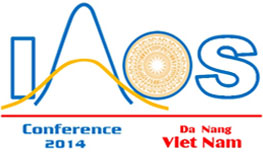 2014 – IAOS conference on ‘Meeting the demands of a changing world’ in DaNang, Vietnam, 8 to 10 October 2014
2014 – IAOS conference on ‘Meeting the demands of a changing world’ in DaNang, Vietnam, 8 to 10 October 2014 Conferences 2013
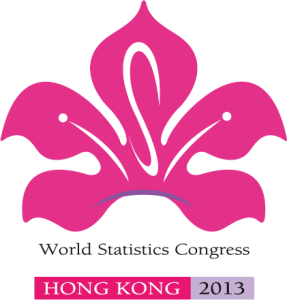
2013 – The 59th ISI World Statistics Congress, Hong Kong, SAR China, 25 to 30 August 2013
2013 – Joint workshop with the International Association for Statistical Education held in Macau, China, 22 to 24 August 2013, on the topic ‘Statistics education for progress’
Conferences 2012
 2012 – IAOS conference on ‘Getting your Messages across’, Kiev, Ukraine, 12 to 14 September
2012 – IAOS conference on ‘Getting your Messages across’, Kiev, Ukraine, 12 to 14 September
2012 – European Conference on Quality in Official Statistics (Q2012)
Conferences 2011
 2011 – The 58th ISI World Statistics Congress, Dublin, Ireland, 21 to 26 August 2011
2011 – The 58th ISI World Statistics Congress, Dublin, Ireland, 21 to 26 August 2011 Conferences 2010
2010 – IAOS Conference on Official Statistics and the Environment, 20-22 October 2010
Conferences 2009
2009 – The 57th ISI session 16-22 August 2009
2009 – Eurostat/IAOS/IFC conference on residential property price indices, Basel, 11-12 November 2009
Conferences 2008
2008 – IAOS/Scorus Conference on “Smart Data, Innovative Uses – Reshaping Official Statistics”, 14 – 16 October (Shanghai, China)
Conferences 2007
Conferences 2006
Conferences 2005
Conferences 2004
2004 – IAOS/IASS Conference on Poverty, Social Exclusion and Development 2004 (Jordan)
Conferences 2003
2003 – The 54th Session of the ISI Conference 2003 (Germany)
Conferences 2002
2002 – The 2002 IAOS Conference on “Official Statistics and the New Economy” (England)
Conferences 2001
2001 – IAOS Satellite Meeting on Statistics for Information Society 2001 (Japan)
2001 – The IAOS Program for the 53rd ISI Conference 2001 (Korea)
2001 – IAOS Forum on Enhancing Statistics Capacity Building in Developing/Transition Countries 2001 (Korea)
2001 – Training Course on Advances in Time Series Analysis 2001 (Korea)
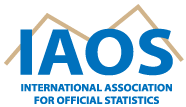
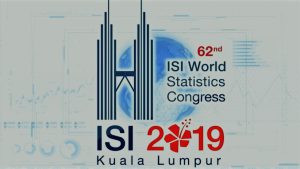 2019 –
2019 – 
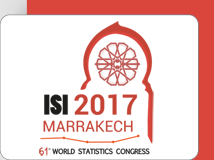 2017 –
2017 – 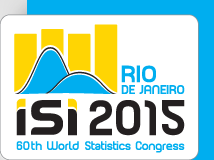 2015 –
2015 –